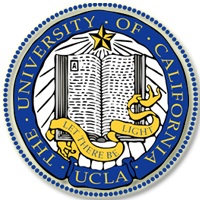 Discourses of fear dominate our contemporary moment. In this so-called “Age of Terrorism,” fear knows no borders, spreads quickly, and provokes the fearful to react in unpredictable ways. Politicians lash out and make shows of strength; citizens march en masse while immigrant families take flight; journalists proclaim “même pas peur!” while young people turn to newer forms of media to express their disillusionment and reshape pervasive stereotypes. At the same time, the causes—or perceived causes—of fear can be as varied as these reactions. Though opinion polls might define fear in terms of “terrorism,” “immigration,” or “globalization,” these kinds of categories often obfuscate and conflate more than they clarify.
Discourses of fear dominate our contemporary moment. In this so-called “Age of Terrorism,” fear knows no borders, spreads quickly, and provokes the fearful to react in unpredictable ways. Politicians lash out and make shows of strength; citizens march en masse while immigrant families take flight; journalists proclaim “même pas peur!” while young people turn to newer forms of media to express their disillusionment and reshape pervasive stereotypes. At the same time, the causes—or perceived causes—of fear can be as varied as these reactions. Though opinion polls might define fear in terms of “terrorism,” “immigration,” or “globalization,” these kinds of categories often obfuscate and conflate more than they clarify.
Using fear as a framework of analysis, we propose to explore how it permeates the discourses of literature, art, and history, in its overt and covert forms. In literature, for example, we tend to associate French medieval epics with the fear of losing territory and influence. How might fears regarding religious conversion undergird these stories? Turning to the sixteenth and seventeenth centuries, humanists of these epochs were motivated by an anxious desire to claim themselves as the inheritors of ancient Greek and Roman cultures. Could we argue that this ambition reflects an unstated fear of not measuring up to these models? France in the late-eighteenth and nineteenth centuries was rocked by revolutions. How might material fears such as hunger have intertwined with ideological fears of persecution and repression to inspire social, political, and cultural change? In the face of repressive regimes from Indochina to Vichy France, from Haiti to Cameroon, dissidents could face severe, or even lethal, punishment. How does the fear of denunciation give rise to coded writings that criticize and subvert the status quo?
In and beyond these contexts, how does fear cloud reason or induce clarity? Can it also have positive, not simply negative, effects? When is fear “natural” and when is it not? Who plays a role in shaping these perceptions? How and by whom is it incited and manipulated, diverted and channeled, coped with, suppressed and overcome? To what end?
For the 21st Annual Graduate Student Conference of the UCLA Department of French and Francophone Studies, we seek to explore the reverberations of fear in French and Francophone literatures, languages, arts, cultures, and histories across time periods and disciplines. We understand fear to include empirical and conceptual engagements with the notions of terror, horror, panic, and phobia. We are interested in how these may be connected to creative endeavor, literary and artistic movements, political and economic gain, and aesthetic and cultural transformations. Our aim is to address concerns of importance to scholars in literature, history, film and media studies, art history, sociology, anthropology, gender studies, and philosophy.
Possible topics may include but are not limited to:
In what cases does fear underlie opinions, decisions, and reactions?
How is fear instrumentalized and exploited?
How does fear work covertly, surreptitiously, or secretly? How can it be disguised? In what ways does the need for aesthetic and social ideals of “purity” and “order” reflect underlying fears?
What causes fear to be politicized or depoliticized?
How does fear legitimate or justify? Unify or divide?
In what ways is fear an affective experience?
How does fear blend with other emotions and states, such as love, desire, obsession, and fascination?
When is fear unacknowledged or even suppressed?
In what ways does fear create confusion, incite hysteria, and/or suspend reason?
How does fear cause paralysis? Or can it provoke action?
How does fear limit expression? Conversely, how can it engender creative response?
When does fear lead to protection and security for some and an amplification of fear for others?
Please send an abstract (300 words or fewer) in English or French, along with your paper title, affiliation, contact information, and biography (75 words) to uclafrenchgradconf2016@gmail.com. Presentations should be no longer than 20 minutes in length.
Our deadline for submissions is July 15, 2016.
21st Annual Graduate Student Conference
Department of French & Francophone Studies
University of California, Los Angeles
20-21 October 2016
http://uclaffsconference2016.weebly.com/

Leave a Reply
You must be logged in to post a comment.